Both MIT and BE stress that it is vitally important for members of an academic community to exhibit high ethical standards in their interactions with one another. Below is MIT’s policy regarding this issue; further information can be found in the Policies and Procedures. In addition, a comprehensive guide, Dealing with Harassment at MIT, will be distributed to all incoming graduate students during their first academic semester at MIT. This guide describes MIT’s system for handling concerns or harassment complaints –complainant, respondent, complaint-handler, and bystanders. Extra copies will be available through the Information Center, Room 7-121
Policy on Harassment
Harassment of any kind is not acceptable behavior at MIT; it is inconsistent with the commitment to excellence that characterizes MIT’s activities. MIT is committed to creating an environment, in which every individual can work, study, and live without being harassed. Harassment may therefore lead to sanctions up to and including termination of employment or student status. Harassment is any conduct, verbal or physical, on or off campus, that has the intent or effect of unreasonably interfering with an individual or group’s educational or work performance at MIT or that creates an intimidating, hostile, or offensive educational, work, or living environment. Some kinds of harassment are prohibited by civil laws or by MIT policies on conflict of interest and nondiscrimination. Harassment on the basis of race, color, gender, disability, religion, national origin, sexual orientation, or age includes harassment of an individual in terms of a stereotyped group characteristic, or because of that person’s identification with a particular group. Sexual harassment may take many forms. Sexual assault and requests for sexual favors that affect educational or employment decisions constitute sexual harassment. However, sexual harassment may also consist of unwanted physical contact, requests for sexual favors, and visual displays of degrading sexual images, sexually suggestive conduct, or offensive remarks of a sexual nature.
The Institute is committed under this policy to stopping harassment and associated retaliatory behavior. All MIT supervisors have a responsibility to act to stop harassment in the areas under their supervision.
Any member of the MIT community who feels harassed is encouraged to seek assistance and resolution of the complaint. MIT provides a variety of avenues by which an individual who feels harassed may proceed, so that each person may choose an avenue appropriate to his or her particular situation. Institute procedures are intended to protect the rights of both complainant and respondent, to protect privacy, and to prevent supervisory reprisal.
See Dealing with Harassment at MIT http://web.mit.edu/communications/hg/ for more information.
